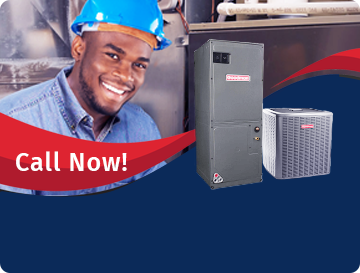In today’s world of increasing demands for energy efficiency and environmentally friendly solutions, traditional water heaters with bulky storage tanks are no longer the gold standard in home water heating. As homeowners search for more sustainable solutions, tankless water heaters have emerged as a popular choice for those seeking energy-efficient and space-saving alternatives that also provide an endless supply of hot water. Explore the benefits and workings of tankless options and how they can enhance your home’s utility and comfort.
Armed with the right information on tankless water heaters, you will gain insights into the various types available, their advantages, and practical considerations to help you make an informed decision. By understanding the innovative features and functionalities of these water heating systems, you can invest confidently in a tankless water heater for improved energy efficiency and an uninterrupted hot water supply.
Join us as we explore the world of tankless water heaters and learn how our expertise can help you harness their benefits for a more efficient, comfortable, and eco-friendly home.
1. Understanding Tankless Water Heaters: How Do They Work?
Unlike conventional water heaters that store a large volume of hot water in a tank, tankless water heaters use high-efficiency burners or electric elements to rapidly heat water on demand as it flows through the unit. This eliminates the need for a storage tank, resulting in significant energy savings and a continuous supply of hot water. Here’s a brief overview of the heating process:
- Water Flow Sensor: As you turn on a hot water tap, cold water flows into the tankless water heater, activating a flow sensor in the unit.
- Burner or Heating Element Activation: The flow sensor triggers either a gas burner or electric heating element, rapidly warming the incoming water to the desired temperature.
- Hot Water Delivery: The heated water flows to the tap, providing a continuous stream of hot water until the tap is turned off.
2. Types of Tankless Water Heaters: Gas vs. Electric
There are two main types of tankless water heaters: gas-fired and electriEach has its unique features, advantages, and requirements:
- Gas-Fired Tankless Water Heaters: These units use natural gas or propane burners to heat the water, offering a higher flow rate and greater heating capacity compared to electric models. However, they may require upgrades to your gas line and the installation of a dedicated venting system.
- Electric Tankless Water Heaters: These use electric heating elements to warm the water, offering a more compact size and easier installation compared to gas-fired units. They tend to have lower heating capacity and flow rates than gas models, making them ideal for smaller households or for providing hot water to specific applications.
3. Benefits of Tankless Water Heaters: Efficiency, Space Savings, and Unlimited Hot Water
Upgrading to a tankless water heater offers several advantages:
- Energy Efficiency: By heating water only when needed, tankless water heaters reduce energy waste and can save you a significant amount on your utility bills. According to the U.S. Department of Energy, tankless models can be more energy efficient than conventional water heaters for households using less than 41 gallons of hot water per day.
- Space Savings: Without the need for a large storage tank, tankless water heaters have a compact design, freeing up valuable space in your home. Most units can be wall-mounted, allowing for flexible installation locations.
- Unlimited Hot Water Supply: Traditional tank storage water heaters can run out of hot water when demand exceeds their capacity, leaving you with cold showers. With a tankless water heater, you’ll enjoy an endless supply of hot water, providing comfort and convenience.
4. Factors to Consider in Choosing the Right Tankless Water Heater
When selecting a tankless water heater, consider the following factors:
- Flow Rate and Temperature Rise: The flow rate (measured in gallons per minute (GPM)) and temperature rise of a tankless water heater are crucial to determining its ability to meet your hot water needs. Ensure that the unit you select can handle the demands of your household’s simultaneous water usage at peak times.
- Fuel Source: Consider whether a gas-fired or electric tankless water heater best suits your home’s existing infrastructure and energy preferences.
- Installation and Maintenance Factors: Assess the physical space, venting requirements, and required electrical or gas upgrades for the unit. Regular maintenance, such as cleaning and flushing the system, will help ensure optimal performance and extend the lifespan of your tankless water heater.
Embrace the Future of Water Heating with Tankless Technology
As an energy-efficient, space-saving, and reliable alternative to traditional storage tank water heaters, tankless water heaters are an attractive option for homeowners seeking modern solutions for their hot water needs. By understanding the benefits, workings, and types of tankless systems, you can make an informed decision that will enhance your home’s comfort and eco-friendliness.
At Hugee Corporation, our team of dedicated professionals is here to provide you with exceptional tankless water heater solutions in Clinton, MD tailored to your unique requirements. Contact us today to discover how our expertise can help you harness the advantages of tankless water heater technology for a more efficient, comfortable, and environmentally friendly home!
SERVICE AREAS
Have a Question?
Let us know how we can help





